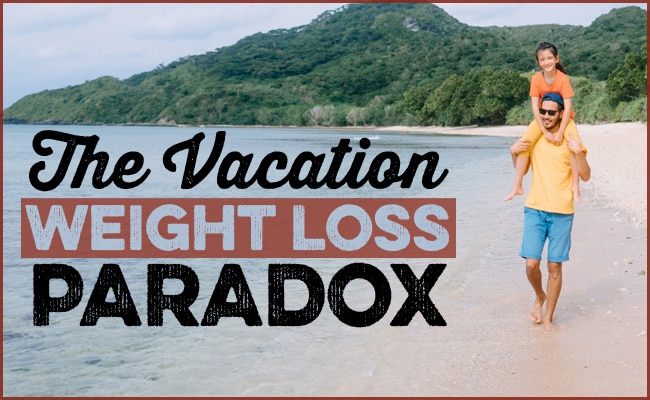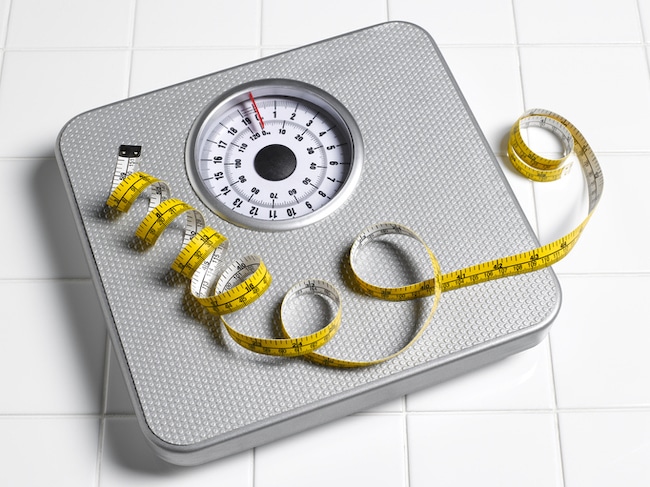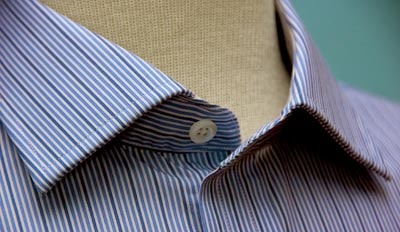
Over the holidays, the McKays took a first-ever trip to Hawaii. While on this week-long vacation, I loosened up my usual diet. I didn’t track my macros like I usually do. We ate out every night, and always followed these big dinners with dessert.
Yet, when I got home and weighed myself, I found that I hadn’t gained any weight. Instead, I had lost two pounds.
It reminded me of an observation strength coach Dan John made in our interview about fat loss. John’s noticed the same paradox with his clients that I experienced: people often come back from vacation lighter than when they left, even when they stay at buffet-heavy, all-inclusive resorts and feel like they ate and indulged more while on the trip.
John thinks this paradox comes down to the fact that while you’re on vacation, you often:
Move more. I think this was the biggest factor in my vacation weight loss. When you’re on vacation, you frequently do much more physical activity than you do back home, walking many sightseeing miles across a city, strolling for hours through museums, or trekking the vast landscape that is Disney World. I spent each day in Hawaii swimming, boogie boarding, and hiking; even though I didn’t do any dedicated workouts while I was away, I was probably 10X more active than I am in my usual sedentary routine.
As Dr. James Levine shared in our podcast about non-exercise activity thermogenesis, or NEAT, research shows you can manage your weight simply by moving your body more outside the gym. Match an increase in calories with an increase in NEAT, and you won’t gain weight. Make your caloric expenditure from NEAT exceed your caloric intake, and you’ll lose weight.
Feel less stressed. I found that, even though I was much more active on my trip, my appetite was actually reduced. Though the meals I ate were bigger and richer than usual, I had less of a propensity to snack, so while it felt like I was eating more than usual, I’m really not sure whether my caloric intake went up significantly or not.
This decrease in hunger may have to do with the way physical activity has been shown to regulate appetite, to the increase in the quality of my sleep (see below), or to the significant reduction in stress I experienced in waking up and going to sleep to the sound of the ocean’s waves. Stress increases cortisol, and cortisol makes you hungry. Less stress = less hunger. A reduction in stress can also provide a healthifying boost to your metabolism overall.
Sleep more. Being sleep deprived has been shown to have a negative effect on weight. When you don’t get adequate sleep, the hormones that make you feel hungry go up, while those that help you feel satiated go down. This leads to an increase in appetite, and you particularly crave high-carb food, as your body looks to sugar for energy to fight its fatigue. Additionally, insulin sensitivity drops and cortisol rises, making your body more apt to hang on to fat.
Getting sufficient sleep helps regulate hunger hormones and improves your metabolism, and you’re likely to get more sleep on vacation.
I’m not sure my quantity of sleep improved while I was in Hawaii because a (cursed, cursed) rooster woke us up each day at 5:30 a.m. But I do think all the physical activity greatly increased my sleep pressure each day, which significantly deepened my sleep.
As Dr. Levine also noted in our conversation, sleep and NEAT create a virtuous cycle: when you move more during the day, you get better sleep at night, and when you get better sleep at night, you have the energy to move more during the day.
What’s great about recognizing the vacation weight loss paradox is that you can apply it to losing weight outside of vacation. It shows that you can lose weight without giving a lot of attention to and getting really strict with your diet (though, of course, dietary changes will enhance your results). Increase your sleep and physical activity while reducing your stress, and it’s possible to trim down naturally.
While it may be easier to improve your stress, sleep, and movement while away, these are all habits that you can readily implement in your normal day-to-day routine at home; while you may have to wait to enjoy beaches, museums, and amusement rides until your next trip, you can start living the vacation lifestyle, and reaping its pound-shedding rewards, right now.







